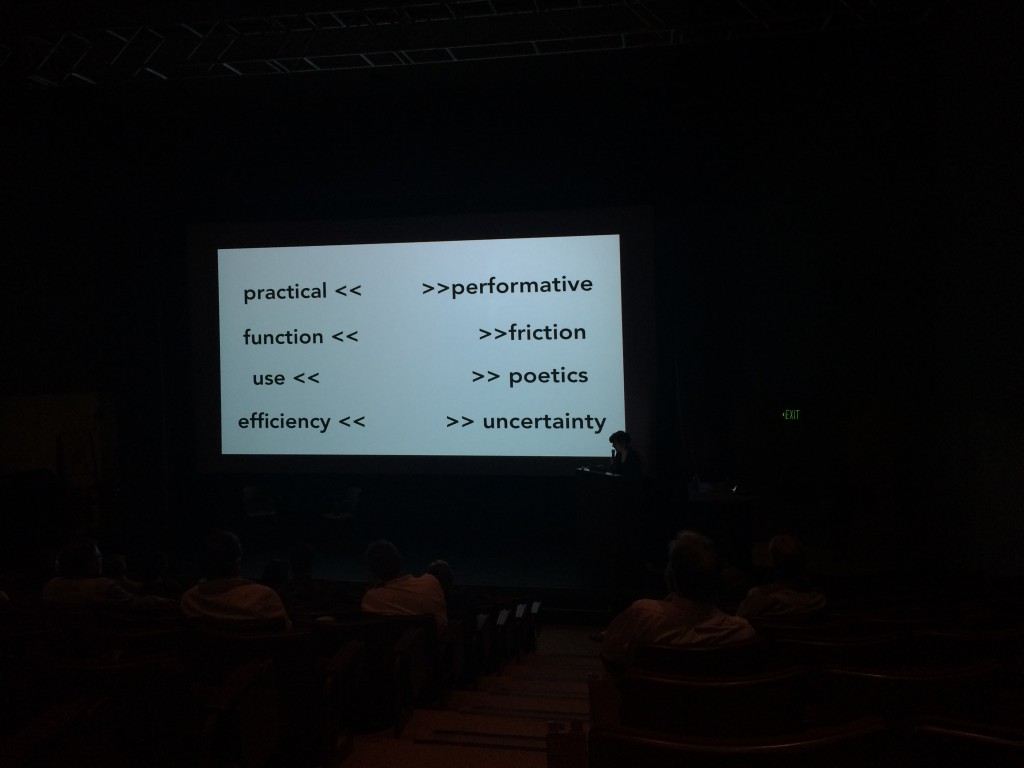You’re Not Gonna Solve These Problems in Your Basement Alone
A Conversation About Accessible Design and Activism
The CFA asked Luke DuBois to invite his friends to Wesleyan this semester to have public conversations about issues relating to the fall exhibition in Zilkha Gallery, “In Real Time.” The first of these conversations was a talk last Thursday between DuBois and Sara Hendren, an artist, designer and engineer whose work centers on disability and accessibility.
Hendren gave a short talk titled, “Investigating Normal: Adaptive Assistive Technology” about her work as a professor at Olin College, a design and engineering school, and as an advocate for disability rights and expanded accessibility resources.
Hendren deconstructs cultural attitudes about disabilities that are often proliferated through media depictions of disabled individuals. Rather than assuming that a disabled person is abnormal and needs to be fixed, Hendren looks for ways to honor and accommodate variation instead of curing disability. Her projects and pedagogy expand dialogue between individuals with disabilities and designers, and seeks to make the world a friendlier place for different types of bodies.
She presented some of her amazing projects, which include:
- Creating transportable ramps that work for both skateboarders and wheelchair users.
- Redesigning the International Symbol of Access to be more representative of people that need and use accessible spaces.
- Facilitating a dialogue with a man who only had one hand, and designing a prosthetic to help him rock climb, rather than designing a multi-use prosthetic hand that he did not feel that he needed.
The humanities are an integral part of Hendren’s work solving human problems, in addition to the work of researching, designing, and engineering that is typically assigned to the sciences. Her philosophy of human-centered design emphasizes discussion between designers and users, and cultural competency about disability and accessibility. In working to merge STEM fields and the humanities, Hendren sees her work as falling along the continuum pictured below:

Afterwards, Luke DuBois encouraged a dynamic and interesting conversation between the audience and the two speakers. Bringing Hendren’s lecture closer to our daily physical context, a Wesleyan professor pointed our how inaccessible Wesleyan is, and the urgency of providing accessible resources in addition to having these conversations on campus.
You can find more information about Sara Hendren’s projects here.
To read more about ableism at Wes look here.
You can watch the whole conversation here.

